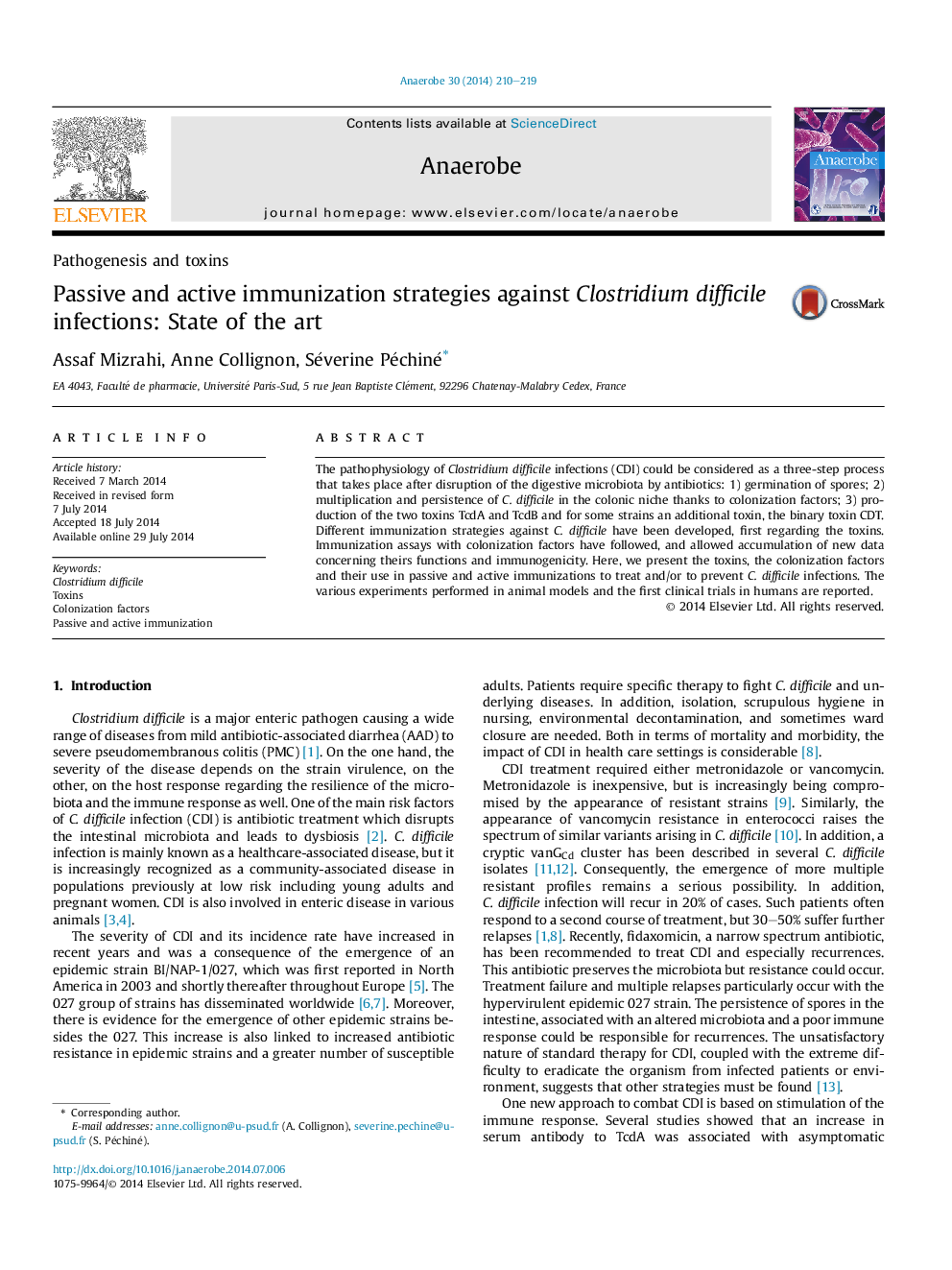| Article ID | Journal | Published Year | Pages | File Type |
|---|---|---|---|---|
| 3395015 | Anaerobe | 2014 | 10 Pages |
•Interest of Clostridium difficile toxins and surface proteins in immunizations.•Parenteral toxins vaccines are efficient to prevent C. difficile infections.•Human clinical trials targeting C. difficile toxins are ongoing.•Advantages of combined vaccines.
The pathophysiology of Clostridium difficile infections (CDI) could be considered as a three-step process that takes place after disruption of the digestive microbiota by antibiotics: 1) germination of spores; 2) multiplication and persistence of C. difficile in the colonic niche thanks to colonization factors; 3) production of the two toxins TcdA and TcdB and for some strains an additional toxin, the binary toxin CDT. Different immunization strategies against C. difficile have been developed, first regarding the toxins. Immunization assays with colonization factors have followed, and allowed accumulation of new data concerning theirs functions and immunogenicity. Here, we present the toxins, the colonization factors and their use in passive and active immunizations to treat and/or to prevent C. difficile infections. The various experiments performed in animal models and the first clinical trials in humans are reported.
